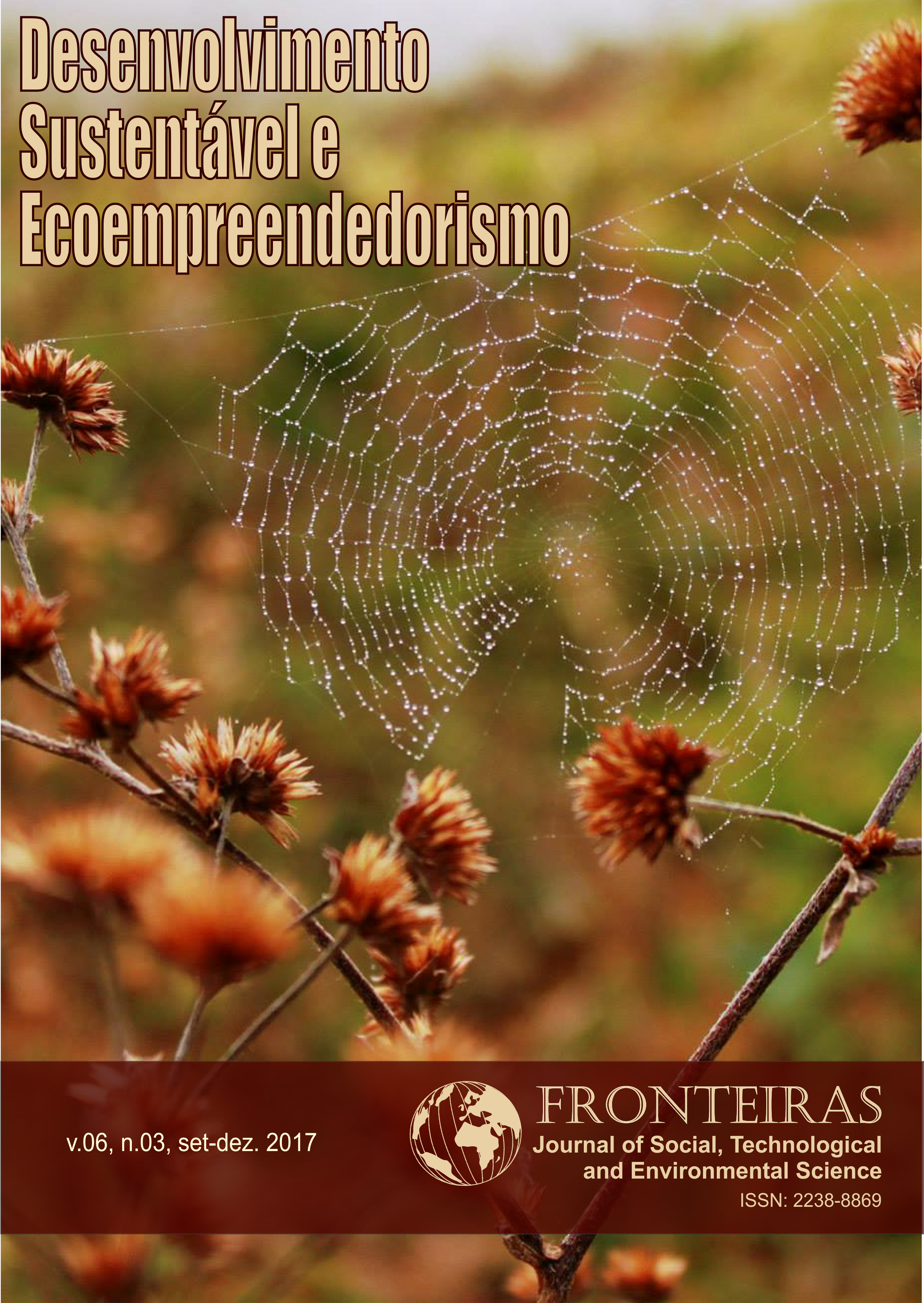Environmental Conception Evaluation in 3rd year of High School Students: a case study in Bauru/SP
DOI:
https://doi.org/10.21664/2238-8869.2017v6i3.p305-319Keywords:
Environmental Education, Teaching of Biology, Structured QuestionnaireAbstract
Although environmental themes are widely discussed in schools, many concepts related to this theme are unknown or poorly understood by teachers and students. This article presents the data obtained through a structured questionnaire whose objective was to evaluate the knowledge of 193 students of the 3rd year of secondary education in the city of Bauru/SP, both public and private schools. After answering the questionnaire, which addressed topics related to ecology, environmental education, genetics and deforestation/reforestation, two pedagogical interventions were proposed to the students through which a review of the concepts required in the questionnaire was carried out. The first and second applications were 45.5% and 56.1% (public) and 57.9% and 67.8% (private), respectively. The groups presented a statistically significant difference (p <0.05) from the comparison of the means of correct answers. It was observed that the students do not know many of the concepts presented in the interventions.
References
Baker R, Walonoski J, Heffernan N, Roll I, Corbett A, Koedinger K. Why students engage in “gaming the system” behavior in interactive learning environments. Journal of Interactive Learning Research. 2008. [cited 2017 mar 12] (19): 185–224. Available from: https://www.learntechlib.org/p/24328
Brasil. Lei nº 9795 – 27 de abril de 1999: dispõe sobre a educação ambiental. Política Nacional de Educação Ambiental 1999, [cited 2017 mar 23]. Avaliable from: http://www.mma.gov.br/port/conama/legiabre.cfm?codlegi=321
Brasília. Inclusão de ciências no Saeb: documento básico. 2013. [cited 2017 mar 23]. Avaliable from: http://download.inep.gov.br/educacao_basica/prova_brasil_saeb/menu_do_professor/matrizes_de_referencia/livreto_saeb_ciencias.pdf
Carvalho MFN, Pereira VC, Ferreira SPAA. A (des) motivação da aprendizagem de alunos de escola pública do ensino fundamental I: Quais os fatores envolvidos? Universidade Federal de Pernambuco. 2008. [cited 2017 mar 12]. Avaliable from: https://www.ufpe.br/ce/images/Graduacao_pedagogia/pdf/2007.2/a%20desmotivao%20da%20aprendizagem%20de%20alunos%20de%20escola.pdf
Cavassan O, Silva PGP, Seniciato, T. O ensino de Ciências, a Biodiversidade e o Cerrado. Divulgação Científica e Ensino de Ciências: Estudos e Experiências. São Paulo. 2006.
Cetintas S, Si L, Xin YP, Hord C. Automatic detection of off-task behaviors in intelligent tutoring systems with machine learning techniques. IEEE Transactions on Learning Technologies. 2010. [cited 2017 mar 12]; (3)3: 228-236. Available from: http://ieeexplore.ieee.org/abstract/document/5306063/?reload=true
De Andrade LV. Mal-estar e atividade docente: um estudo com professoras de educação infantil. Revista Trabalho e Educação. 2012. [cited 2017 mar 12]; (21)1: 65-82. Avaliable from: http://portal.fae.ufmg.br/seer/index.php/trabedu/article/view/732/920
De Assis ARS, Chaves MRA. Educação Ambiental E O Ensino De Biologia Para A Prática Social. Espaço em Revista. 2014. [cited 2017 mar 15]; (16)1. Avaliable from: http://www.revistas.ufg.br/espaco/article/view/31094
ENEM. Brasil. 2015. [cited 2017 mar 4]. Avaliable from: http://www.qedu.org.br/
IBGE. São Paulo: Bauru. 2016. [cited 2017 mar 1]. Available from: http://www.cidades.ibge.gov.br/xtras/perfil.php?lang=&codmun=350600
IDEB. São Paulo: Bauru. 2015. [cited 2017 mar 3]. Available from: http://ideb.inep.gov.br/resultado/home.seam
Manzato AJ, Santos AB. A Elaboração De Questionários Na Pesquisa Quantitativa. 2012. [cited 2016 out 01] (9). Available from: http://guiadotcc.com.br/assets/uploads/arquivos/elaboracao_questionarios_pesquisa_quantitativa.pdf
Medeiros BA, Mendonça MJSL, Sousa GLD, Oliveria IPD. A importância da educação ambiental na escola nas séries iniciais. Revista Faculdade Montes Belos. 2011. [cited 2017 mar 31] (4)1:1-17. Avaliable from:
http://www.terrabrasilis.org.br/ecotecadigital/index.php?option=com_abook&view=book&catid=4:educacao-ambiental&id=1462:a-importancia-da-educacao-ambiental-na-escola-nas-series-iniciais&Itemid=54
Medeiros M. 2005. Questionários: Recomendações para formatação. Brasil: Instituto de Pesquisa Econômica Aplicada, p.33-34.
Pedro L, Isotani S. Explorando o Impacto da Gamificação na Redução do Gamingthe System em um Ambiente Virtual de Aprendizagem. Anais dos Workshops do Congresso Brasileiro de Informática na Educação 2016. [cited 2017 mar 12]; p. 81. Available from: http://br-ie.org/pub/index.php/wcbie/article/view/6912/4786
Pisa. Programa Internacional de Avaliação de Estudantes. 2015. [cited 2017 mar 23]. Avaliable from:
http://download.inep.gov.br/acoes_internacionais/pisa/marcos_referenciais/2015/matriz_de_ciencias_PISA_2015.pdf
Ribeiro JAG, Cavassan O. Os conceitos de ambiente, meio ambiente e natureza no contexto da temática ambiental: definindo significados. Gondola: Ensenanza Aprendizaje de las Ciencias. 2013. [cited 2017 mar 24] (8)2: 61-76. Avaliable from: http://revistas.udistrital.edu.co/ojs/index.php/GDLA/article/view/5149/6768
Silva E, Nascimento ALR, Oliveira HM. Avaliação dos recursos didáticos no ensino de biologia no ensino médio público de Pombal. Anais do Congresso Nordestino de Biólogos. 2014. [cited 2016 sep 7]; (4). Avaliable from: http://congresso.rebibio.net/congrebio2014/trabalhos/pdf/congrebio2014-et-06-007.pdf
Silva HO, Amorim S, Santos ESL, Silva CBMC. A biologia evolutiva apresentada por alunos do Ensino Médio:(RE) pensando conceitos e pontos de vista. Revista Eletrônica de Biologia (REB). 2011. [cited 2016 sep 7]; (4)2: 80-92.Available from: http://revistas.pucsp.br/index.php/reb/article/view/7877
Teixeira A. Matriz de Referência para o ENEM 2009. 2009 [cited 2017 mar 23]. Avaliable from: http://download.inep.gov.br/educacao_basica/enem/downloads/2012/matriz_referencia_enem.pdf
Downloads
Published
How to Cite
Issue
Section
License
This journal offers immediate free access to its content, following the principle that providing free scientific knowledge to the public, we provides greater global democratization of knowledge.
As of the publication in the journal the authors have copyright and publication rights of their articles without restrictions.
The Revista Fronteiras: Journal of Social, Technological and Environmental Science follows the legal precepts of the Creative Commons - Attribution-NonCommercial-ShareAlike 4.0 International. 


